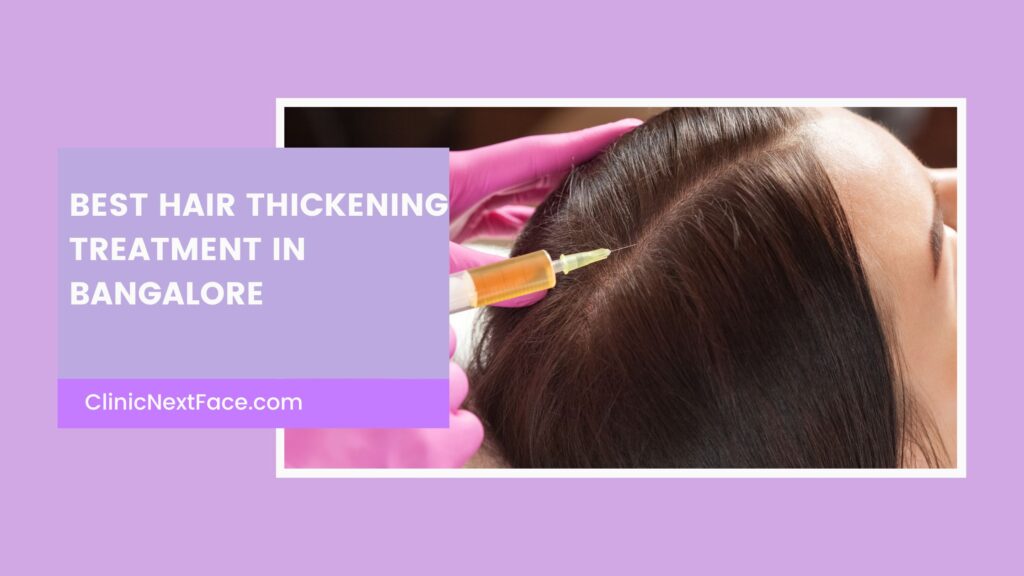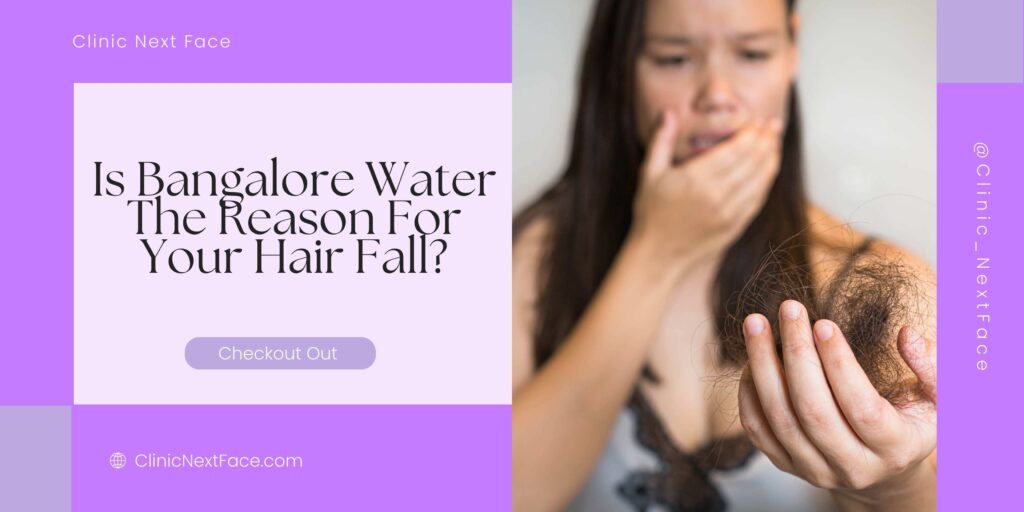Transform Your Hair With the Best Hair Thickening Treatment in Bangalore
TL;DR Hair plays a significant role in building confidence and personality, with 81% of women feeling confident when their hair looks great and 72% finding it empowering. Hair thinning is a common concern caused by various factors such as genetics, hormonal imbalance, nutritional deficiency, aging, etc. Common signs of hair loss include gradual thinning on the head, sudden hair loosening, patchy or circular bald spots, and scaling patches. Different types of hair loss conditions include Androgenetic Alopecia, Telogen Effluvium, Anagen Effluvium, Cicatricial Alopecia, and Hypotrichosis. Various hair thickening treatment options include non-surgical treatments like Scalp Micropigmentation and Topical Serums and minimally invasive treatments like PRF Therapy, Mesotherapy, QR678, and GFC Hair Treatment. Surgical options like FUE and FUT Hair Transplant are also available. Factors for choosing the right treatment include the severity of hair loss, budget, personal preferences, and lifestyle. 81% of women feel confident when their hair looks great, and 72% say their hair is empowering. Hair is one of the most predominant signs of beauty and one of the first things that people notice about you. It plays a dominant role in building up your confidence and overall personality. Long, strong, thick, voluminous, and shiny hair can transform your look, capture people’s attention and make you feel confident. Whereas, a receding hairline and consistent hair thinning can degrade your overall look and gradually lowers your self-esteem. You may even avoid stepping outside fearing what people would say about your hair thinning. Are you stressed about your severe hair thinning and want to get rid of it immediately? At CNF in Bangalore, you can do the best hair thickening treatments to solve this issue. Our experts examine your hair thinning condition and customize the right treatment accordingly. Understanding Hair Loss Before treating hair thinning, you should understand its common causes, types and how to identify its signs. Common Causes of Hair Thinning Here are the most common causes of hair thinning: Genetics Genetics is the most common cause of hair loss among people of all genders worldwide. So, you can lose hair only because of your parents suffering from severe hair loss. Alopecia Areata Alopecia Areata, an autoimmune disease, attacks your hair follicles that cause hair thinning. Never take medicines without consultation to cure this disease. Scarring Alopecia In scarring alopecia, inflammation destructs the hair follicles, which never regrow hair. Hormonal Imbalance Polycystic Ovarian Syndrome(PCOS) forms cysts in your ovaries, which causes hair loss. Thyroid Excess or decreased functioning of the thyroid can cause hair thinning. You can also see hair coming out in clumps when brushing or combing. Nutritional Deficiency The deficiency of protein, iron, biotin, and zinc nutrients can cause hair loss. Childbirth As a mother, you may have severe hair fall after a few months of delivering a baby because of hormonal changes during and post-pregnancy. Aging Aging slows down hair growth. Your hair follicles stop hair growth at a certain age, which causes thinning. The hair also loses color as you grow older. Identifying the Signs of Hair Loss Hair thinning may occur in various ways depending on the causes. You can have hair loss suddenly or slowly, which affects your scalp and even your full body. Once you the major signs of hair loss below, take steps to cure it: Thinning on Head Top Gradual thinning is a common type of hair loss that occurs in many people as they age. Hair tends to start receding at the hairline on foreheads among men. In older women, a common hair thinning symptom is a receding hairline, i.e., frontal fibrosing alopecia. Sudden Hair Loosening An emotional/physical shock can loosen the hair. Gentle tugging may take out the hair. S7ch type of hair loss tends to cause temporary overall hair thinning. Patchy/Circular Bald Spots People lose hair in patchy/circular bald spots on the scalp, eyebrows, or beard. Your skin may pain or itch before your hair starts falling out. Scaling Patches Spread Across Scalp It is a symptom of ringworm, which may come with swelling, redness, broken hair, and oozing. Types of Hair Loss Conditions Here are the most common types of hair loss: Androgenetic Alopecia Androgenetic Alopecia, also called male/female pattern hair loss, is the most common type of hair loss, which is hereditary and curable with medicines or surgeries. Telogen Effluvium Telogen Effluvium develops when many follicles on your scalp enter the hair growth cycle’s resting phase, known as telogen. However, the next growth stage doesn’t start, which causes hair to fall across the scalp without the growth of new hair. Anagen Effluvium Anagen Effluvium is quick hair loss caused due to medical treatment, like chemotherapy, which destroys cancer cells. However, they may stop the production of hair follicles on your scalp and other body parts. Cicatricial Alopecia Cicatricial alopecia, also called scarring alopecia, is a hair loss condition where inflammation ruins hair follicles and forms scar tissues in their place. Hair doesn’t regrow after scar tissue formation. Hypotrichosis Hypotrichosis is a genetic condition in which extremely less hair grows on the body and scalp. Babies born with hypotrichosis may have normal hair growth initially. After a few months, their hair starts falling out and sparse hair replaces them. Many hypotrichosis patients get bald by the age of 25. You Deserve Personalised Perfection. Book Now Hair Thickening Treatment Options Here are the different types of hair thickening treatment options you can do to thicken your hair: Non-Surgical Treatments Scalp micro pigmentation, also called hair tattoo, covers thinning hair or bald spots without surgeries. The experts use thin needles to make mini dots of pigment/color on your scalp. The treatment covers bald spots and makes a shaved head look. The results stay for at least 4 years. As scalp micro pigmentation involves no anesthesia or surgery, you can quickly resume everyday activities. Your scalp may have some redness that stays for many years. Avoid wetting your scalp, hot showers, sun exposure on the scalp, sweating, or staying in a hot environment. Topical Serums
Transform Your Hair With the Best Hair Thickening Treatment in Bangalore Read More »















